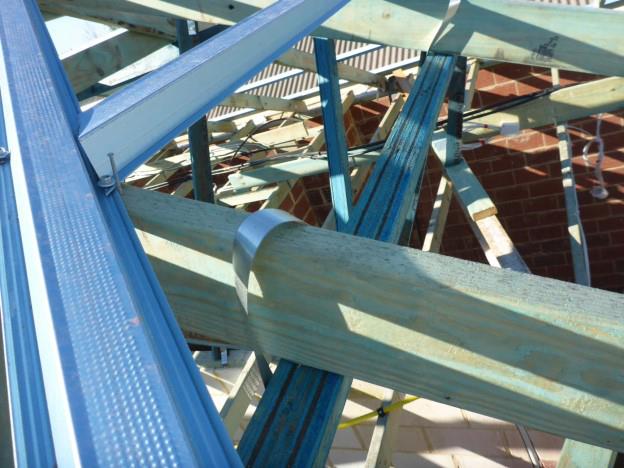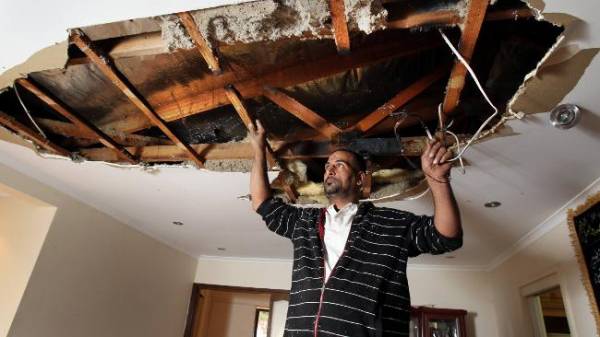
What are Under Construction Building Inspections, and Why are They Important?
Choosing to have a brand new home built, rather than purchasing an existing property, can be an exciting and fulfilling moment. Whilst there are many benefits which accompany the construction of a new home, sometimes there are a small amount of added responsibilities.
During the planning and building process, you're able to ensure the home you're having built will meet the individual needs of your unique household and reflect your personal tastes. In some cases you'll also be forced to live with the results of construction stemming from inadequate workmanship over the course of your experience in home ownership. This is why it's so important for property owners who are having new homes built to commit to proper oversight throughout the building process. One of the best ways to ensure the most crucial parts of your new home are built properly and up to all relevant standards is to invest in stage construction inspections.
What are Stage Construction Inspections?
Just as an existing home should be evaluated by a professional building inspector before the submission of an Offer and Acceptance, the soundness and quality of a new home should be ascertained during a build. Stage construction inspections are designed to ensure proper building techniques, workmanship and quality during the building process to protect homeowners and their investments. These comprehensive inspections include intensive scrutiny on several aspects of a new home, and the finished product as a whole. To understand how these inspections benefit homeowners, it's important to first understand what each stage entails.
- Slab – The initial focus of stage inspection reports is typically the slab, which takes place after it's been poured and allowed to dry. With a copy of the most up-to-date plans, a professional building inspector will ensure the depth, dimensions and size of the slab is accurate, plumbing is placed properly and the workmanship is of reasonable quality. Your inspector will carefully evaluate any cracks and inform you if they're significant to the project overall, and check to make sure the slab work is completed in accordance with the plans and up to Australian Standards.
- Wall and Roof Framing – After a slab has been poured, dried and inspected, the next step in construction will be the framing of the walls and roof. When framing has been completed, an inspector will use the most recent plans and specifications to ensure the roof frame conforms with those plans, the roof beams are supported and are properly installed. During this stage of the inspection, they'll also determine appropriate wall placement, as well making sure windows and doors are the right dimensions and in the right place. Wire ties and tie down straps will also be inspected to make sure they're correctly installed.
- Lock-Up Stage – When the roof is on your new home and brickwork, veneer or pre-lining is complete, construction has moved into the lock-up stage. This means services are installed and the roof is on, but insulation, wall and ceiling coverings have not yet been added. Stage construction inspections up to this point will focus on ensuring general workmanship throughout the completed build is adequate, including correct installation of bricklaying, roof covering and the frame is ready for installation. Additionally, an inspector will look at services like plumbing, gas and electrical to make sure they're located in the appropriate places and installed according to standard. Structural components will be checked against the building plans to make sure they're in accordance, and the building works are prepared for finishing surface material installation.
- Pre-Handover – The final stage of inspection will take place after the builder has indicated the construction project is substantially completed, but before the keys have been handed over to the new owners. At this time, an inspector will complete a detailed inspection of all the finished materials and workmanship, including any shelving, cabinet carcasses, ceilings, bathrooms, rendering, brick cleaning and plastering. The workmanship will be checked to make sure all work has been completed acceptably, that the general layout and front elevation are in keeping with the plans finishing components have been accurately installed.
While you work with builders toward the common goal of completing your brand new home, you'll be faced with a series of tasks and responsibilities. When the work has been finished and you've taken ownership of the property, however, you'll also be running the risk of accepting ownership of any major defects or building mistakes. Working with your builder after the fact in an attempt to have these defects rectified is a lengthy process, and it's far from uncommon for these disputes to become a legal battle. Because your PCA does not oversee the quality of finishing or general workmanship, this leaves the responsibility for doing so solely in your hands.
In almost all cases, working with a professional building inspector to complete stage construction inspections is the best and most effective way of guarding your investment and your future happiness in your new home. Doing so allows you to be diligent about spotting and correcting any potential defects before you assume ownership of the property, and that all work has been completed correctly the first time. In the end, stage construction inspections conducted by a professional building inspector help you to avoid the possibility of a drawn out legal battle or disputes with your builder, so you can focus on moving into and enjoying your dream home.
Houspect Building Inspections - Buy, Build, Invest and Sell with Confidence
08 9228 3999
info.wa@houspectwa.com.au



